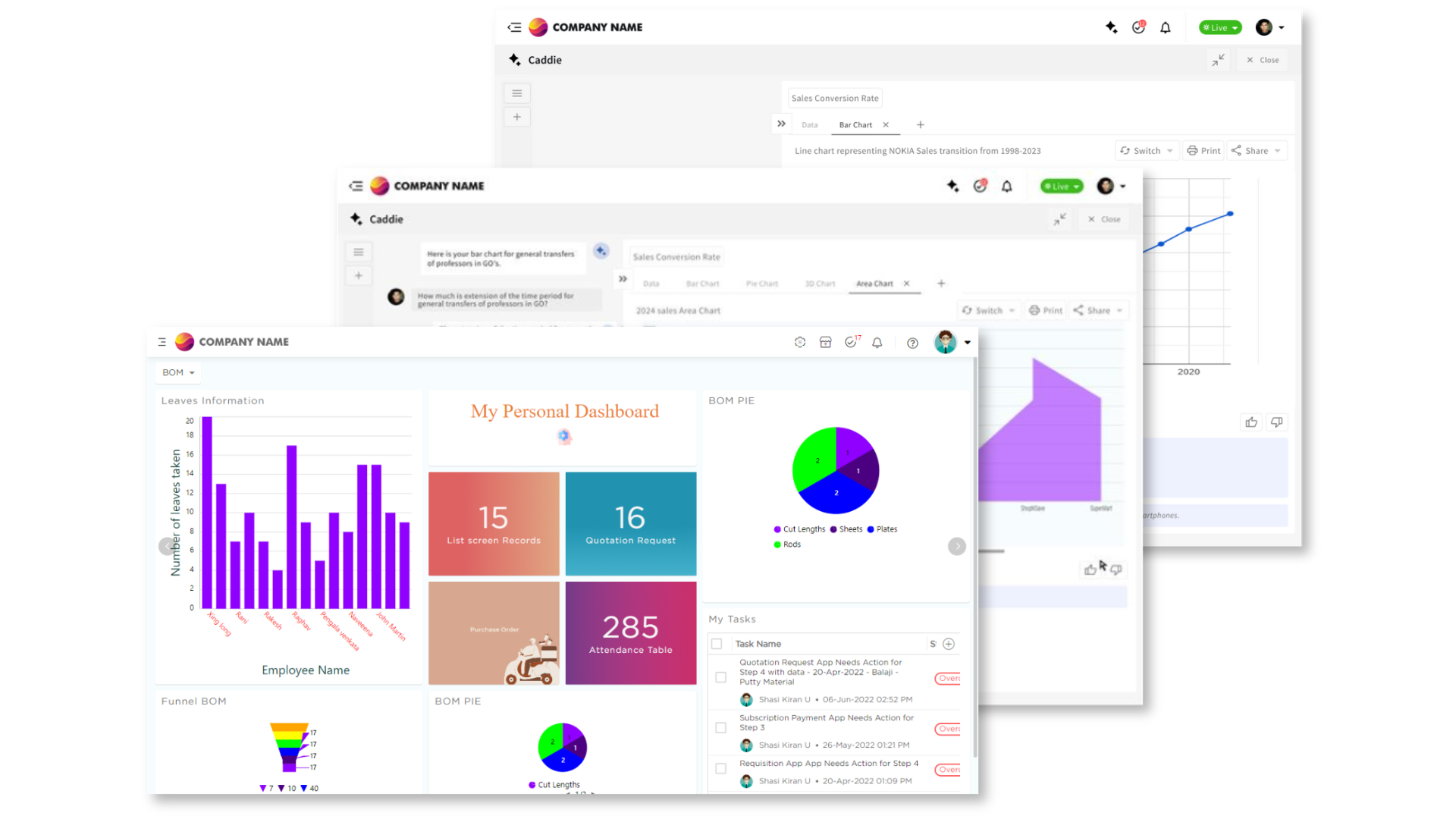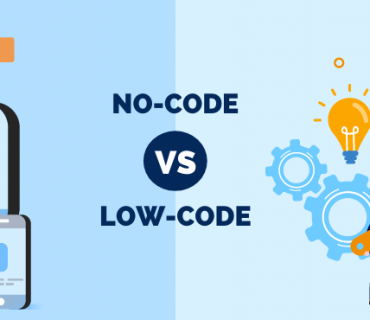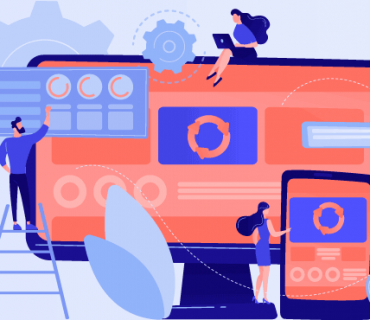No-Code App Development Made Smarter with Built-In AI for Business and IT
Unlock innovation with Quixy’s No-Code Platform. Integrate, automate, and Scale – all without writing a single line of code.

What’s No-Code Application Development?
No-code application development puts you in control- no developers, no delays. With Quixy’s no-code platform with AI capabilities, turn ideas into real apps faster. Build exactly what your business needs, scale with ease, and manage everything effortlessly.
Why No-Code Matters?
- Stay Agile: Adapt instantly to market changes—no coding delays.
- Empower Everyone: Enable business and IT to build together—no barriers.
- Cut Costs: Save time & money by eliminating traditional development bottlenecks.

Why You Win with Quixy - The Clear No-Code Edge You Need
We know no-code sounds simple-yet without the right tools, slow delivery and tangled complexity can sneak in. But with Quixy, you’re in control hassle-free rapid application development.
Seamless Integration Keeps Your Data Aligned
We help you eliminate shadow IT and data silos by seamlessly connecting Quixy with your IT system – so your workflows stay unified, efficient, and stress-free.
Enterprise-Grade Security Gives You Peace of Mind
With our Platform & expert team, you can safeguard your sensitive data with built-in security & compliance features so that you can focus on what matters most.
Automation Boosts Productivity and Speeds Workflows
With Quixy, you can now automate repetitive tasks and manual processes, so your team can focus on what truly drives your business forward.
Real-Time Analytics Drive Smarter Decisions
Caddie gives you real-time analytics & key business metrics—offering insights & anomaly alerts to help your teams act faster, smarter & with greater confidence.
Cloud-Native Flexibility Enables Work Anywhere
We help you support your remote teams and global operations with Quixy’s cloud platform – so your business can scale and adapt whenever you need it.
Faster ROI Saves You Time and Money
With Quixy by your side, you’ll build faster, maintain effortlessly, and unlock the full value of no-code – starting with quick wins from day one.
No-Code for Management - Without Development Headaches
With Quixy, you get complete visibility into workflows, approvals, and outcomes – all while reducing risks, cutting costs & delivery delays.
Complete Visibility
Monitor project development and track data analytic in real-time without extra effort.
Higher ROI
To deliver faster effective results and save more than traditional IT spending.
Governance Built-In
Get role-based controls and audit –trails ensure nothing falls through the cracks.
3 Powerful Steps to Build No-Code Apps
Drag & Drop Your Vision
Design sleek, custom apps effortlessly with intuitive drag-and-drop — no coding skills needed.
Automate Like a Pro
Create smart workflows and automate approvals with a few clicks — speed up every process.
Launch Fast, Scale Easy
Deploy instantly on a secure cloud. Grow your app as your business evolves — no limits.
Explore Our No-Code App Development Blogs for Expert Insights
The No-Code Choice for World Movers
No-Code eBook

Key Takeaways
- Understand all the Whats related to no-code
- Know How no-code is different from different types of development
- Discover Why no-code is important for all the stakeholders of an organization
Frequently asked questions about No-Code
What kind of apps can I build with Quixy No-Code app development?
With Quixy, you can build a wide range of business apps - from simple forms and task trackers to complex workflows, approval processes, custom dashboards, and customer-facing portals. If it helps your business run better, you can build it - no coding required.
What are the pros of using Quixy No-Code app development?
Quixy makes it easy to build faster, reduce reliance on IT, and empower your teams to solve problems independently. You get quicker turnaround, streamlined workflows, and the flexibility to adapt as your business changes.
Do I need any coding or technical skills to use Quixy No-code App development?
No coding, no problem. Quixy’s visual interface is designed for everyone, whether you’re in operations, HR, finance, or customer support. If you can drag, drop, and click - you can build apps with Quixy.
How does no-code development with Quixy speed up digital transformation?
Quixy helps your teams build solutions as soon as they identify a need -no more waiting for development queues. That means faster automation, fewer bottlenecks, and a more agile business that’s ready to adapt and grow.
Can Quixy no-code app development integrate with existing system?
Yes, seamlessly. Quixy connects with your current systems- like ERPs, CRMs, and other business tools - so you can keep everything in sync while eliminating data silos.
Can Quixy help me in automating the business process with No-Code solution?
Absolutely. Automating workflows is one of Quixy’s strengths. From simple approvals to complex, multi-step processes, you can build automated workflows tailored to your exact business needs - all without writing code.
Can Quixy scale with my business as we grow?
Yes - we grow with you. Quixy’s cloud-native, flexible architecture lets you build, modify, and scale your apps as your business evolves—no disruptions, no limitations. Whether you’re starting small or going enterprise-wide, Quixy keeps up.


















